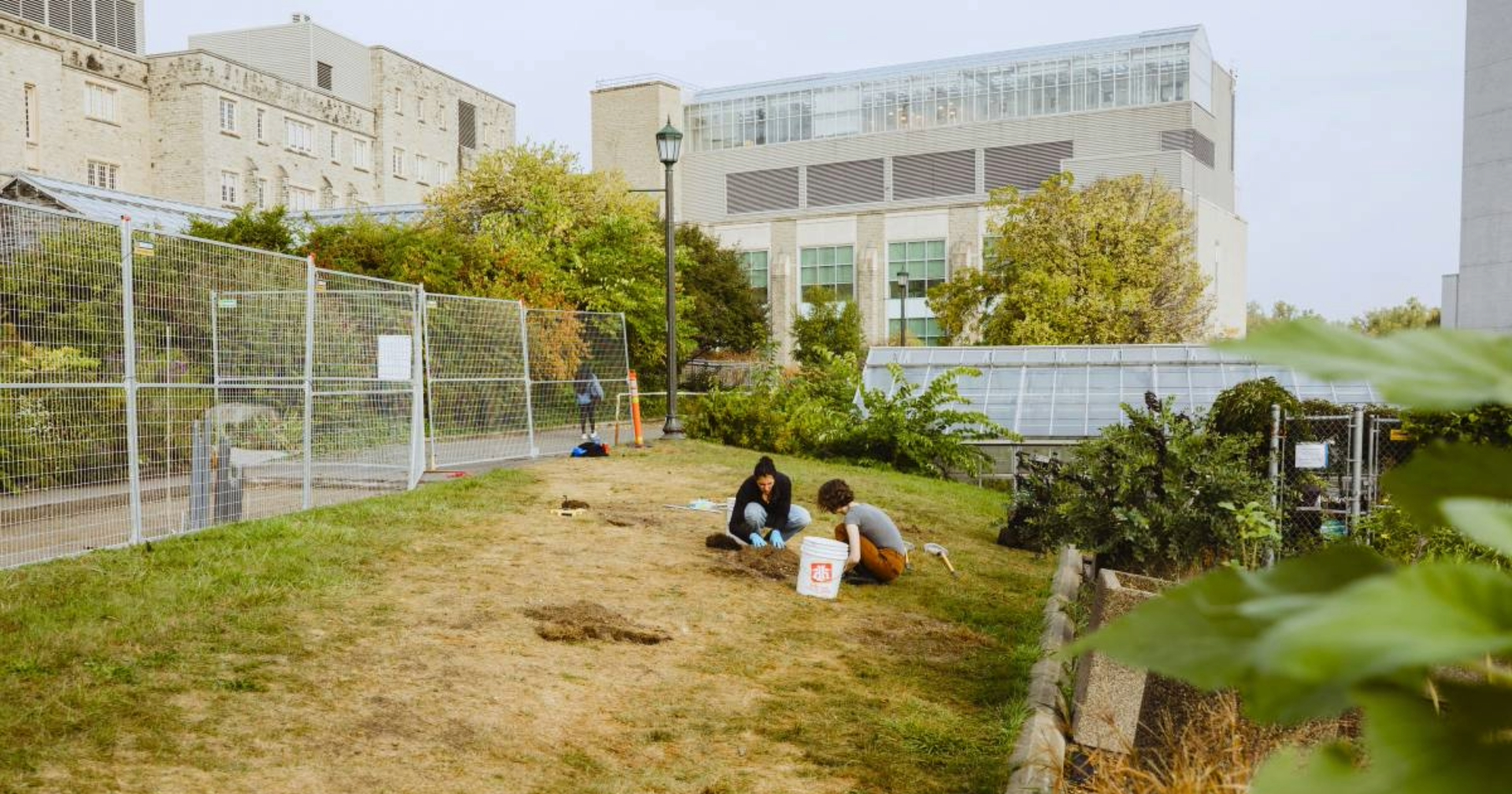Science
Fourteen Researchers Secure $3.4 Million for Innovative Solutions

Fourteen researchers from Western University have received a total of $3.4 million in funding from the Canada Foundation for Innovation (CFI). This grant aims to address pressing issues within Canada, focusing on innovative solutions in health care, environmental sustainability, and advanced communication technologies.
The funding is part of the CFI’s John R. Evans Leaders Fund (JELF). Among the awarded projects, geography and environment professor Geneviève Metson has been allocated $267,274. Her initiative seeks to establish two interconnected labs on campus: a conventional laboratory for chemical analysis and a living lab dedicated to urban agriculture. These labs will collaborate to minimize the ecological risks associated with urban farming, particularly as cities strive to implement sustainable practices.
Urban agriculture has many benefits, including enhancing food security and fostering community engagement. However, it can also inadvertently lead to nutrient runoff that contaminates local waterways. Metson’s research focuses on understanding the dynamics of nutrient movement from soil to water, particularly under changing climatic conditions. “The project looks at cities, nutrient cycling and climate change all in one dynamic way,” Metson explained. “We want to work with real people on real problems in real settings.”
The living lab will consist of two garden plots located near Western’s existing community gardens. Student groups and faculty will manage these plots, making autonomous decisions regarding planting and maintenance. Metson’s team will utilize advanced monitoring equipment to analyze the flow of essential nutrients, like nitrogen and phosphorus, at different soil depths.
These nutrients are critical for agricultural productivity; however, their excessive presence in bodies of water can lead to harmful algal blooms, particularly in the nearby Great Lakes. “It’s not that nitrogen and phosphorus are pollutants we need to avoid. They’re resources we need to manage judiciously,” Metson noted. Urban gardeners often use recycled materials, such as manure or compost, which can lead to nutrient imbalances and increased runoff.
Metson’s research builds on her previous findings in Sweden, where she discovered that significant nutrient losses occur during winter and early spring, not just when fertilizers are applied. Over the next five years, her team will gather data on how climate variability affects these agricultural systems. The proximity of the living lab to campus allows for continuous monitoring and rapid response to significant weather events.
“The data will help us create best management practices to limit the losses of essential nutrients,” she added. Beyond the immediate goals of the project, Metson envisions its broader implications for nutrient management across urban green spaces, while also providing training for students in sustainability practices.
In addition to the interdisciplinary nature of the project, Metson aims to integrate art and science by collaborating with visual arts PhD student Danielle Petti. Petti will document the living lab process, and plans are underway to create a mural for the site’s fence, with an exhibition set for September 2026 at Cohen Commons.
Other projects funded through the JELF at Western University include various initiatives aimed at improving accessibility in music, understanding the impact of emerging RNA viruses on brain function, and advancing technology for communication in older adults. These projects collectively highlight the university’s commitment to addressing complex challenges through innovative research and collaboration.
As Canada continues to navigate urgent issues related to climate change, health care, and technological advancements, the funding from the Canada Foundation for Innovation represents a significant investment in the future of research and innovation.
-

 Education3 months ago
Education3 months agoBrandon University’s Failed $5 Million Project Sparks Oversight Review
-

 Science4 months ago
Science4 months agoMicrosoft Confirms U.S. Law Overrules Canadian Data Sovereignty
-

 Lifestyle3 months ago
Lifestyle3 months agoWinnipeg Celebrates Culinary Creativity During Le Burger Week 2025
-

 Health4 months ago
Health4 months agoMontreal’s Groupe Marcelle Leads Canadian Cosmetic Industry Growth
-

 Science4 months ago
Science4 months agoTech Innovator Amandipp Singh Transforms Hiring for Disabled
-

 Technology3 months ago
Technology3 months agoDragon Ball: Sparking! Zero Launching on Switch and Switch 2 This November
-

 Education3 months ago
Education3 months agoRed River College Launches New Programs to Address Industry Needs
-

 Technology4 months ago
Technology4 months agoGoogle Pixel 10 Pro Fold Specs Unveiled Ahead of Launch
-

 Business3 months ago
Business3 months agoRocket Lab Reports Strong Q2 2025 Revenue Growth and Future Plans
-

 Technology2 months ago
Technology2 months agoDiscord Faces Serious Security Breach Affecting Millions
-

 Education3 months ago
Education3 months agoAlberta Teachers’ Strike: Potential Impacts on Students and Families
-

 Science3 months ago
Science3 months agoChina’s Wukong Spacesuit Sets New Standard for AI in Space
-

 Education3 months ago
Education3 months agoNew SĆIȺNEW̱ SṮEȽIṮḴEȽ Elementary Opens in Langford for 2025/2026 Year
-

 Technology4 months ago
Technology4 months agoWorld of Warcraft Players Buzz Over 19-Quest Bee Challenge
-

 Business4 months ago
Business4 months agoNew Estimates Reveal ChatGPT-5 Energy Use Could Soar
-

 Business3 months ago
Business3 months agoDawson City Residents Rally Around Buy Canadian Movement
-

 Technology2 months ago
Technology2 months agoHuawei MatePad 12X Redefines Tablet Experience for Professionals
-

 Business3 months ago
Business3 months agoBNA Brewing to Open New Bowling Alley in Downtown Penticton
-

 Technology4 months ago
Technology4 months agoFuture Entertainment Launches DDoD with Gameplay Trailer Showcase
-

 Technology4 months ago
Technology4 months agoGlobal Launch of Ragnarok M: Classic Set for September 3, 2025
-

 Technology4 months ago
Technology4 months agoInnovative 140W GaN Travel Adapter Combines Power and Convenience
-

 Science4 months ago
Science4 months agoXi Labs Innovates with New AI Operating System Set for 2025 Launch
-

 Technology4 months ago
Technology4 months agoNew IDR01 Smart Ring Offers Advanced Sports Tracking for $169
-

 Top Stories2 months ago
Top Stories2 months agoBlue Jays Shift José Berríos to Bullpen Ahead of Playoffs










